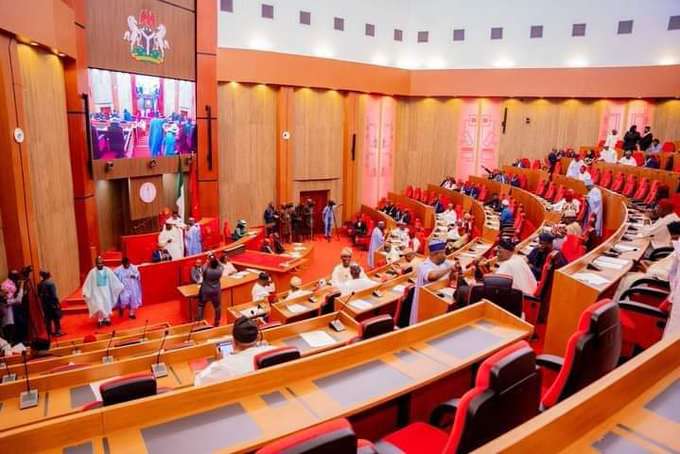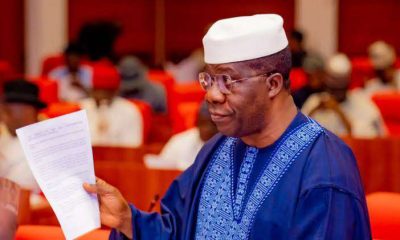Politics
Senate Suspends Debate on New Electoral Act Amid Fears of Deliberate Delay

The Senate on Thursday suspended further debate on a bill seeking to repeal the Electoral Act 2022 and enact a new Electoral Act 2025, amid growing concerns that the move may be a ploy to delay meaningful reforms ahead of the 2027 general election.
The decision followed a motion by the Senate Leader, Senator Opeyemi Bamidele (APC, Ekiti), who urged that deliberations be stood down to allow for wider consultations and deeper understanding of the bill’s provisions. The motion, seconded by the Minority Leader, Senator Abba Moro (PDP, Benue), was adopted at plenary.
Bamidele argued that the timing was not right for the upper chamber to proceed with an executive session on such a far-reaching legislation. “There is a need for further consultations on the bill before proceeding further,” he said, noting that lawmakers must first grasp the “general principles and details” before taking a position.
However, some political observers and civil society groups have expressed concern that the suspension may be a deliberate tactic to stall electoral reforms and prevent the new law from being enacted in time for the 2027 polls.
The bill, sponsored by the Chairman of the Senate Committee on INEC, Senator Simon Lalong (APC, Plateau), seeks a comprehensive repeal and re-enactment of the Electoral Act, rather than a mere amendment.
Lalong explained that while the 2022 Electoral Act introduced several innovations, it also exposed major weaknesses in the electoral system — including delays in election funding, disputes over voter registers, conflicting interpretations of result transmission, and widespread litigations from party primaries.
He said Nigerians expect “not mere corrections, but a holistic law that would restore faith in the country’s elections,” stressing that the new bill aims to strengthen INEC’s independence, enhance transparency, and introduce digital reforms such as continuous voter registration, electronic transmission of results, and digital registers with QR codes.
“It sets stricter timelines and clearer rules for party primaries, candidate nomination, and replacement in cases of death or withdrawal,” Lalong added, expressing confidence that the legislation, if passed, would “restore public trust, reduce post-election disputes, and empower INEC to function without interference.”
With Thursday’s suspension, senators are expected to engage stakeholders and review the proposed reforms before the bill returns for further consideration – though critics fear that time may be running out to implement the changes before 2027.





